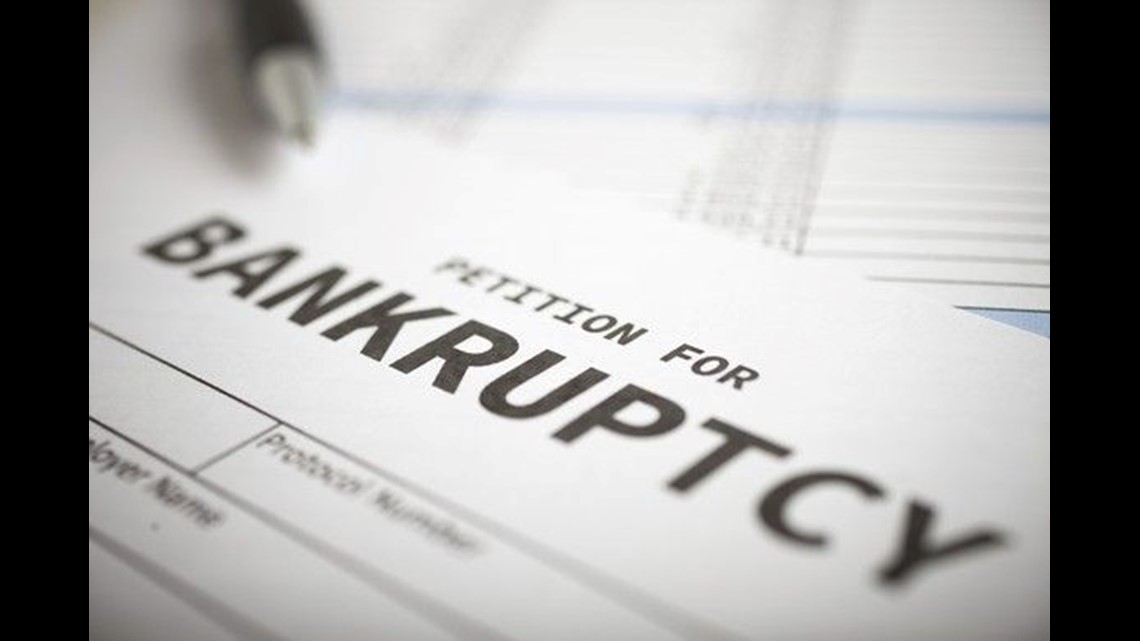There is a possibility that the shareholder might wish to sell their shares before that period. Once a stock is delisted, the company's shares cannot be traded on the stock exchange platform but there is another way of trading, through a process known as "over-the-counter" . Involuntary delisting means the forced removal of a listed company's shares from the stock exchange. Involuntary delisting happens for several reasons such as when there is a violation of the regulations, late or wrongful reporting, or the failure to meet the minimum financial expectations, etc. Monetary standards refer to the ability to maintain the share price, financial ratios, and sales volumes at a requisite minimum. When a company fails to meet the listing requirements, the respective exchange issues a warning of non-compliance to the company.
If the issue remains unaddressed beyond specified timelines, the stock is delisted by the listing exchange. Before a stock gets delisted, an announcement is made to the marketplace. Sometimes, a company will voluntarily delist its shares and make the announcement itself, but other times an exchange will announce that a company no longer meets its listing requirements.
Because a delisted stock can be hard to sell, many investors will sell after a delisting announcement, driving the price down. This is particularly true in cases of bankruptcy, where there is usually no use in holding on to the delisted shares. In the case of involuntary delisting, the delisted company, whole-time directors, promoters and group firms get debarred from accessing the securities market for 10 years from the date of compulsory delisting.
Promoters of the delisted companies are required to purchase the shares from public shareholders as per the fair value determined by an independent valuer. In cases of compulsory delisting shareholders do not take part in the decision process and thus may be affected in a negative way, but SEBI fulfilling its primary duty has set up a way to protect the investors. The rights enshrined in the regulations give a fair chance to the public shareholders to get their net worth invested in the equity back if not more. For those who might be greatly affected by the compulsory delisting of shares always have a chance to appeal to SAT and for others who chose to keep the shares have the option to sell their securities through OTC. Those investors fail to participate in the reverse book-building process have the option of selling their shares to the promoters. The promoters are under an obligation to accept the shares at the same exit price.
This facility is usually available for a period of at least one year from the date of closure of the delisting process. You can get shares of delisted companies on the stock exchanges at a cheaper price and participate in the buyback process. This is because investors of the shares that are to be delisted might sell the shares before the buyback offer. The promoter of the company is not allowed to participate in the process and the floor price is decided based on a reverse book building process. Later, when the stock exchange passes an order of delisting it has to publish the similar three newspapers as was required before.
The notice should consist of the decision of delisting, the name of the company along with its address, the fair value of the delisted equity shares and the name along with the address of the promoters. Stock exchange needs to inform all the other stock exchanges where the equity shares are listed about the delisting and also upload a copy of the order on their website. Chapter III of the Securities and Exchange Board of India Regulations, 2021 deals with voluntary delisting.
But delisting takes place involuntarily as well also known as compulsory delisting where the process takes place on the order of the securities exchanges or the SEBI . When a delisting occurs, it typically results in shareholders losing all of their investment in a particular stock unless they sell their shares before the delisting occurs. However, if a company is delisted and investors do not tender their shares, some stocks can be traded on the over-the-counter market. Buying and selling stocks on the OTC is typically more difficult.
Share delisting is the removal of a listed stock from a stock exchange platform, and thus it would no longer be traded on the bourse. In simple words, delisting means the permanent removal of a stock from stock exchange. The delisting of a security can be either voluntary or involuntary.
In case of involuntary delisting, no opportunities are left for investors. Bankruptcies, failure to maintain the requirements set by the exchange, takeovers or mergers, stock performance are key factors that often lead to delisting. A recognized stock exchange may be reasoned to order delisting of equity shares under any of the reasons as mentioned above under the Securities Contracts Act, 1956. Now before such an order can be passed, it has to be made sure that the company whose shares are being proposed to be delisted gets a reasonable opportunity of being heard.
Owing to this rule NSE recently sent Café Coffee Day a show cause notice asking why the company should not be compulsorily delisted from the public markets after being non-compliant of the disclosure norms since June 2019. Even if the company is made to delist by the stock exchange authorities, they will need to provide money to their shareholders as they own the shares. So, the company will buy back the shares from the shareholders at the cost that is determined by an independent evaluator.
Note that even if the company is asked to delist, investors are still owners and have the right to sell their shares. However, the company's shares might have a much lesser value once it is delisted. When a company voluntarily decides to remove all its shares from the stock exchanges and makes them unavailable for trading, it is voluntary delisting.
If a company opts for this kind of delisting, it is required to pay all the shareholders money for all the shares held by them. In the case of involuntary delisting, the delisted company's, whole-time directors, promoters and group firms get debarred from accessing the securities market for stipulated years from the date of compulsory delisting. That means delisted shares will no longer be traded on the stock exchanges – National Stock Exchange and Bombay Stock Exchange .
The process of delisting securities for any company is governed by the market regulator, Securities and Exchange Board of India . If the company is delisting shares from all the stock exchanges in India except for the National Stock Exchange and the Bombay Stock Exchange , they don't need to buyback the shares. So, the company might not be offering any exit options to shareholders because the shares are still available for trading on the BSE and NSE. Shareholders can sell the shares and exit any time they want by way selling shares on NSE/BSE. When a company is asked by the stock market regulatory authorities to delist all the shares and they want the company shares to stop trading, it is called involuntary delisting.
There are various reasons or situations why a company's shares are involuntary delisted. When a company's shares are relisted on the stock exchanges, they become available to the public for trading. This can prove to be especially useful if you've chosen to retain your investment in the equity of a company whose shares were delisted, since it essentially gives you a chance to exit and recover your investment. When a company is delisted, its stock no longer trades on one of the major stock exchanges.
In a direct sense, nothing happens to a shareholder when delisting occurs. The shareholder still owns the same percentage of the company as before, and he is free to sell the shares to any willing buyer. The consequences of delisting can be significant since stock shares not traded on one of the major stock exchanges are more difficult for investors to research and harder to purchase. This means the company is unable to issue new shares to the market to establish new financial initiatives. The exchange will notify the public of the delisting and the reasons why. Evaluate your position and determine if it makes sense for you to keep or sell your shares.
While this doesn't instill much confidence in the long-term viability of a company, it beats hearing that the company is filing for bankruptcy. Bankruptcy usually wipes out a company's original shares and shareholders typically are not entitled to newly issued stock when the company emerges from bankruptcy, rendering their investment worthless. After a stock is delisted, it can trade over-the-counter ("OTC") on one of three different exchanges. There are some advantages to trading OTC, such as getting access to early stage companies not large enough to trade on the NYSE or Nasdaq or getting access to foreign companies that trade on non-U.S. However, the lower barriers to entry on the OTC means higher risks of fraud and less transparency into a company's operations. It is rare that a delisted stock will get itself back on to the more traditional exchanges.
To do so, it would have to avoid bankruptcy, solve the issue that forced the delisting, and again become compliant with the exchange's standards. For the process to be fair, it has to be made sure that all the relevant parties are being communicated that includes the public. The stock exchange has to consider the representations against the notice in accordance with the guidelines mentioned in the regulation. Delisting means removing the securities of a company listed on the stock exchanges. When a company comes up with an IPO, its shares are listed on the stock exchanges and can be freely traded on the platform on a daily basis.
In contrast, when delisting takes place the shares are taken down from the stock exchanges meaning they will no longer be available on the platform for trading. The Securities Exchange Board of India since its establishment had the primary motive to protect the investors and has been regulating the market and imposing penalties on those who have ulterior motives. One of such actions is compulsory delisting of those companies who do not comply with the regulations set down by SEBI or such regulations that are to be complied with for them to be listed in the market. On doing so the shareholders will be put in a vulnerable position where their right to trade in the open market will be taken away.
SEBI will never let the investors get adversely affected by any of its decisions and so it has embodied certain rights of securities holders in case of compulsory delisting of securities. To appreciate such rights, it is important to understand the concept of delisting and its process as laid in the SEBI regulations. Companies generally delist when they want to expand or restructure, are acquired by others, or the promoters wants to raise their stake.
Delisting can be a voluntary decision where a company pays investors and removes its securities from the exchange or a forced delisting by stock exchanges for non-compliance with their rules. In case of voluntary delisting of shares, the shareholders are offered to tender their shares to the company at a floor price determined by the reverse book building process. When the delisting of a company's shares is brought about forcefully by SEBI, the process is known as compulsory delisting.
Usually, a company that doesn't comply with the listing guidelines or the regulatory requirements of the exchange is compulsorily delisted by SEBI. However, there can be other reasons as well, such as insufficient market capitalisation or low stock price. The very fact that the company has been exiled to OTC land means that market interest in the company is somewhere between slim and none. Many investors, large and small, make it a policy never to own an unlisted stock, so the delisting drives the shares even lower, possibly into a death spiral that sends the company to bankruptcy court. Demand for active OTC stocks still exists -- some people are always willing to take a chance on a bargain -- but it's so small that a single large trade can often send the share price soaring or plummeting. That makes OTC stocks highly volatile -- and vulnerable to manipulation.
If a company reorganizes through bankruptcy, a merger or some other process, it may cancel its stock, in which case the shares must be delisted. New shares will be issued; owners of the old shares may receive new shares, or they may get nothing, depending on the reorganization. Other times, investors "take a company private" by buying up all the outstanding shares.
In that case, the shares will be delisted because the stock is no longer held by the public. The shares may still exist; they're just consolidated in the ownership group. When a company's shares get "delisted," they disappear from the exchange on which they had been trading.
Depending on the reason for the delisting, the shares may continue to trade -- although buying delisted stocks can carry considerably more risk than buying those still traded on an exchange. Often, involuntary delistings are indicative of a company's poor financial health or poor corporate governance. For example, in April 2016, five months after receiving a notice from the NYSE, the clothing retailer Aéropostale Inc. was delisted for noncompliance. In May 2016, the company filed for bankruptcy and began trading over-the-counter. In the United States, delisted securities may be traded over-the-counter except when they are delisted to become a private company or because of liquidation. Involuntary delisting refers to the forced removal of listed company shares from the stock exchange for various reasons including non-compliance with the listing guidelines, late filing of reports, and low share price.
A delisting of shares can be contrasted with an initial public offering , which is the process of a private company going public. This is when a company will put its stocks up for sale to the public and its shares are traded on a stock exchange. This is because the stock exchange is a big market that facilitates the coming together of willing buyers and sellers, whereas in a non-listed company there is no real market for you to trade these shares on. Delisting means the company's shares can no longer be traded in the stock exchange. It usually happens in the case of a merger or bankruptcy or it has decided to take itself private. It can also happen if the company has not met requirements for the listing or trading stock in the open market.
You might have come across or heard about companies delisting their shares. There are many companies that are delisted from the stock exchanges every day. This happens when companies are not willing to offer their shares for trading anymore.
However, if the company is delisted and investors do not tender their shares, such stocks can be traded in the unlisted markets. The off-market is a good option for the investors to deal in such counters if the stocks are not written off from their Demat account. In both cases, investors lose money as such companies delist their equity at dirt cheap prices, most of the time.
In many cases, shares of delisted companies have vanished from the Demat account of shareholders and investors lose all the money overnight. Essentially, what happens when a stock is delisted is that it will no longer be traded on stock exchanges – National Stock Exchange or Bombay Stock Exchange . The process of delisting securities is governed by the Securities and Exchange Board of India .
When a company announces voluntary delisting, it buys back the shares held by the public through a process known as reverse book building. Through this process, the public shareholders are given the freedom to set the buyback price that they deem fair. And, the price with the maximum number of bids is finalised as the cut off price for the buyback. Consequently, it tends to attract companies that are more current with the release of their financial statements. But in either case, whether a stock drops down to the OTCBB or the pink sheets, it invariably suffers a decline in investor confidence after hemorrhaging the trust of the major exchange it once traded on. And if the company remains delisted beyond a short time period, institutional investors and investment banking analysts will likely cease researching the stock altogether.
Delisting is the removal of a listed security from a stock exchange. The delisting of a security can be voluntary or involuntary and usually results when a company ceases operations, declares bankruptcy, merges, does not meet listing requirements, or seeks to become private. A listed company's shares get delisted from exchange for various reasons.























































